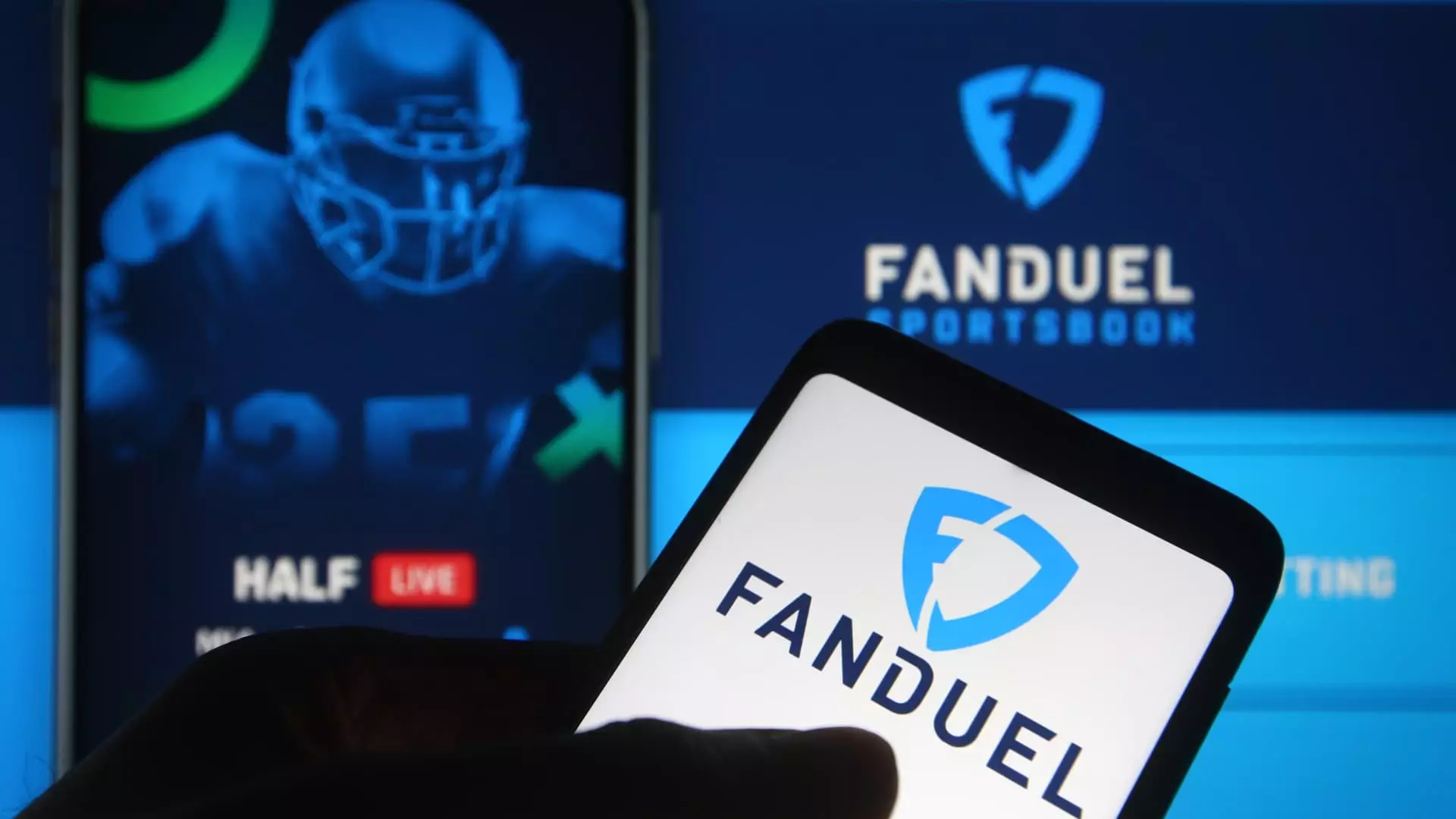As the guard changes in regional sports broadcasting, the impending transformation of Diamond Sports’ channels underscores a significant shift in sports media and its relationship with betting companies. The announcement of a naming rights deal between Diamond Sports and FanDuel—one of the leading names in sports betting—highlights the evolving landscape that intertwines sports, media, and online gambling. This alliance unfolds just as the NHL season kicks off and the NBA prepares for its own new season, illuminating not just a rebranding initiative, but also a strategic maneuver for Diamond Sports to navigate its bankruptcy phase and secure a more stable financial future.
The partnership between Diamond Sports and FanDuel is poised to redefine the Bally Sports brand, which has already undergone multiple rebrands in recent years. By gaining a “long-term naming rights partner,” as described by Diamond Sports in their court filings, FanDuel will enhances its presence, positioning itself as a leader in a space that is increasingly intersecting with the world of professional sports. This initiative provides FanDuel with an opportunity to solidify its brand among sports fans while simultaneously aiding Diamond in its effort to resurface from bankruptcy protections.
This restructuring plan reportedly includes provisions for FanDuel to acquire up to 5% equity in the reorganized Diamond Sports, along with performance warrants that offer similar equity benefits. The intention behind these financial arrangements denotes a strategic collaboration aimed at capturing the synergistic potential of sports broadcasting and the booming online gaming industry, which has increasingly become inseparable from the modern sports experience. Yet, this partnership remains contingent on court approval, emphasizing the intricate legal frameworks surrounding sports media operations.
Diamond Sports’ decision to pursue a new naming rights partner comes against a backdrop of adversity that has characterized its recent history. Following its acquisition of Fox Corp.’s assets, the networks were sold to Sinclair Broadcast Group, where they subsequently adopted the Bally Sports name. This was not the end of turbulence; a settlement earlier this year between Diamond Sports and Sinclair indicated that governance issues and financial mismanagement played a significant role in Diamond’s current predicament. Thus, the partnership with FanDuel could serve as a remedy to these historic missteps, funneling much-needed liquid assets to the beleaguered broadcasting network.
Yet, as Diamond Sports maneuvers its way through these turbulent waters, it cannot ignore the larger trends at play across the entire sports broadcasting ecosystem. The past few years have seen numerous teams from MLB, NBA, and NHL abandon traditional regional sports networks in favor of local streaming options or direct team broadcasts. This disintegration of conventional broadcasting partnerships raises questions about the viability and future of such networks. For instance, with significant teams opting out—like the San Diego Padres and Arizona Diamondbacks—Diamond Sports finds itself in a concerning position, as its contracts shrink, decreasing its attractiveness to potential partners and advertisers alike.
Looking ahead, the future of regional sports networks such as Diamond Sports may depend significantly on how adeptly they can navigate these changes. The reliance on major sponsors like FanDuel symbolizes a potential lifeline, but it also reflects a broader trend where the anime media landscape increasingly adapts to the influence of online gambling and betting culture. The ongoing collaboration between sports networks and betting companies could irrevocably change how fans interact with sports, leading to a more integrated yet complex sports viewing experience.
Nonetheless, this paradigm shift does not come without its challenges. The blending of sports, broadcasting, and betting entails regulatory scrutiny, ethical questions about gambling, and longer-term effects on fandom itself. Whether Diamond Sports is able to leverage its new partnership for sustainable growth amid these uncertainties remains to be seen, but one thing is clear: the evolution of regional sports broadcasting is just beginning, and its trajectory will be closely watched by industry stakeholders and fans alike. In this context, Diamond Sports, fueled by its new business strategy, has the potential to reinvent itself, but the path towards recovery will require considerable navigation of both financial and operational challenges.

